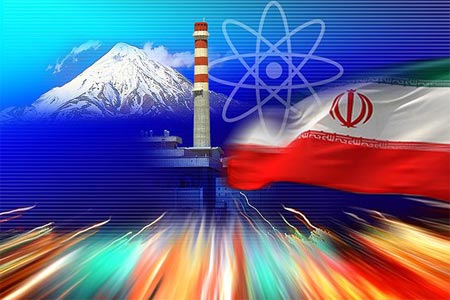An intelligence official stated that “in large part, that’s because their system is so confusing… which has the effect of making it difficult to determine who speaks authoritatively on what.”
The New York Times published Saturday a report under the headline “US Faces a Tricky Task in Assessment of Data on Iran, in which it quoted a former intelligence official as saying that “Iran is the hardest intelligence target there is. It is harder by far than North Korea”.
The report, which highlighted the difficulty that the United States faces in finding information on Iran’s nuclear program, also indicated that Israel’s intelligence service, Mossad, agrees with the American intelligence assessments, despite Israel’s constant threats of waging a military attack on the Islamic Republic to prevent it from becoming a real existential threat to the occupying entity.
 The intelligence official stated that “in large part, that’s because their system is so confusing… which has the effect of making it difficult to determine who speaks authoritatively on what.”
The intelligence official stated that “in large part, that’s because their system is so confusing… which has the effect of making it difficult to determine who speaks authoritatively on what.”
“We’re not on the ground, and not having our people on the ground to catch nuance is a problem,” he explained.
Jeffrey Richelson, the author of “Spying on the Bomb,” a history of American nuclear intelligence, told the US daily that “at certain stages, it is very hard to track the weapons work unless someone is blabbing and their communications can be intercepted… the extent of the evidence the spy agencies have collected is unclear because most of their findings are classified.”
The paper indicated that “the United States relies heavily on information gathered by inspectors with the International Atomic Energy Agency who visit some of Iran’s nuclear-related facilities.”
However, it added “collecting independent human intelligence — recruiting spies — has been by far the most difficult task for American intelligence. Some operational lapses — and the lack of an embassy as a base of operations ever since the hostage crisis three decades ago — have frequently left the C.I.A. virtually blind on the ground in Iran.”
In parallel, American officials assured to NY Times that America and Israel share intelligence on Iran, clarifying that “Israel relies in part on an Iranian exile group that is labeled a terrorist organization by the United States, the Mujahedeen Khalq, or M.E.K., which is based in Iraq. The Israelis have also developed close ties in the semiautonomous region of Kurdistan in northern Iraq.”
In contrast, the paper pointed out that that “American intelligence officials, however, are wary of relying on information from an opposition group like the M.E.K., particularly after their experience in Iraq of relying on flawed information provided by the Iraqi National Congress, an exile group run by Ahmad Chalabi.”